Related Research Articles
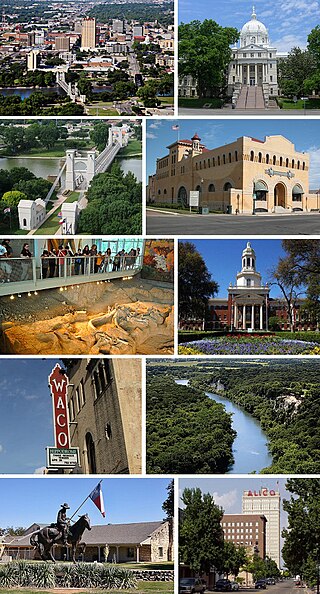
Waco is a city in and the county seat of McLennan County, Texas, United States. It is situated along the Brazos River and I-35, halfway between Dallas and Austin. The city had a U.S. census estimated 2023 population of 144,816, making it the 24th-most populous city in the state. The Waco metropolitan statistical area consists of McLennan, Falls and Bosque counties, which had a 2020 population of 295,782. Bosque County was added to the Waco MSA in 2023. The 2023 U.S. census population estimate for the Waco metropolitan area was 304,865 residents.
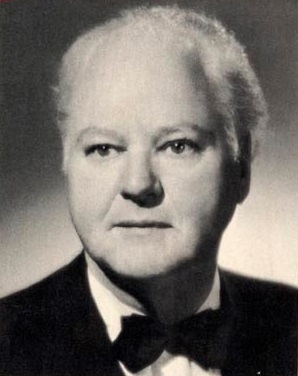
Haroldson Lafayette Hunt Jr. was an American oil tycoon. By trading poker winnings for oil rights according to legend, but more likely through money he gained from successful speculation in oil leases, he ultimately secured title to much of the East Texas Oil Field, one of the world's largest oil deposits. He acquired rights to East Texas oil lands initially through a $30,000 land purchase from oil speculator Dad Joiner, and founded Hunt Oil in 1936. From it and his other acquisitions, which included diverse interests in publishing, cosmetics, pecan farming, and health food producers, he accrued a fortune that was among the world's largest. In the 1950s, his Facts Forum Foundation supported highly conservative newspaper columns and radio programs, some of which he authored and produced himself, and for which he became known. At his death, he was reputed to have one of the highest net worths of any individual in the world, a fortune estimated between $2–3 billion dollars.

Robert Lee Thornton Sr. was an American banker, civic leader, and four-term Mayor of Dallas, Texas.
Chief Rabbi is a title given in several countries to the recognized religious leader of that country's Jewish community, or to a rabbinic leader appointed by the local secular authorities. Since 1911, through a capitulation by Ben-Zion Meir Hai Uziel, Israel has had two chief rabbis, one Ashkenazi and one Sephardi.

George Bannerman Dealey was a Dallas, Texas, businessman. Dealey was the long-time publisher of The Dallas Morning News and owner of the A. H. Belo Corporation. A plaza in Dallas is named in his honor and became instantly world-famous when it was the site of the assassination of John F. Kennedy in 1963.

Louis Marshall was an American corporate, constitutional and civil rights lawyer as well as a mediator and Jewish community leader who worked to secure religious, political, and cultural freedom for all minority groups. Among the founders of the American Jewish Committee (AJC), he defended Jewish and minority rights. He was also a conservationist, and the force behind re-establishing the New York State College of Forestry at Syracuse University, which evolved into today's State University of New York College of Environmental Science and Forestry (SUNY-ESF).

The Swiss Avenue Historic District is a residential neighborhood in East Dallas, Dallas, Texas (USA). It consists of installations of the Munger Place addition, one of East Dallas' early subdivisions. The Swiss Avenue Historic District is a historic district of the city of Dallas, Texas. The boundaries of the district comprise both sides of Swiss Avenue from Fitzhugh Street, to just north of La Vista, and includes portions of Bryan Parkway. The District includes the 6100-6200 blocks of La Vista Drive, the west side of the 5500 block of Bryan Parkway the 6100-6300 blocks of Bryan Parkway, the east side of the 5200-5300 block of Live Oak Street, and the 4900-6100 blocks of Swiss Avenue. The entire street of Swiss Avenue is not included within the bounds of the Swiss Avenue Historic District. Portions of the street run through Dallas' Peaks Suburban Addition neighborhood and Peak's Suburban Addition Historic District. 5215 Swiss was built in 1914 and was the home of J. P. Cranfield
Jewish Texans have been a part of the history of Texas since the first European explorers arrived in the region in the 16th century. In 1990, there were around 108,000 adherents to Judaism in Texas. More recent estimates place the number at around 120,000.
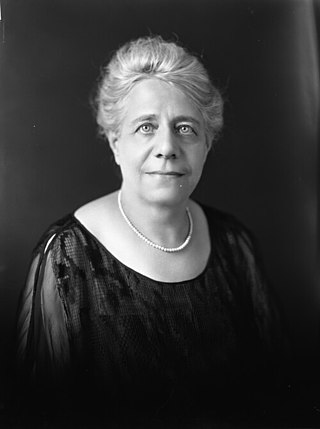
Olga Bernstein Kohlberg was a Jewish Texan philanthropist and founder of the first public kindergarten in Texas. Kohlberg served as president of the Woman's Club of El Paso for two terms, one from 1899-1900 and the other from 1901-1902. Kohlberg lived in the historic Sunset Heights neighborhood.

Jews have inhabited the city of Galveston, Texas, for almost two centuries. The first known Jewish immigrant to the Galveston area was Jao de la Porta, who, along with his brother Morin, financed the first settlement by Europeans on Galveston Island in 1816. de la Porta was born in Portugal of Jewish parentage and later became a Jewish Texan trader. In 1818, Jean Laffite appointed de la Porta supercargo for the Karankawa Indian trade. When Laffite left Galveston Island in 1820, de la Porta became a full-time trader.
Dallas is the third-largest city in Texas and has one of the largest Jewish communities in the state.

Congregation Beth Israel is a Reform Jewish congregation and synagogue located at 5600 North Braeswood Boulevard, in Houston, Texas, in the United States. The congregation, founded in 1854, is the oldest Jewish congregation in Texas; and it operates the Shlenker School.
In modern Rabbinic Judaism, the traditional method of determining Jewishness relies on tracing one's maternal line. According to halakha, the recognition of someone as fully Jewish requires them to have been born to a Jewish mother. A person who is born to a non-Jewish mother and a Jewish father is regarded as Zera Yisrael and will only be accepted as ethnically Jewish and not as religiously Jewish. Thus, being Jewish through the paternal line typically necessitates conversion to Judaism to validate one's identity as a Jew in the fullest sense.
Carrie Marcus Neiman was an American businesswoman and one of the co-founders of Neiman Marcus, a luxury department store.

The Wilson Block is a historic district located in east Dallas, Texas and was one of the first residential developments in Dallas. It was added to the National Register of Historic Places in 1978. The houses have been restored and are maintained to preserve their turn-of-the-century Victorian revival style architecture. The Wilson Block includes 4 of the original single-family dwellings located at what is now 2902, 2906, 2910 and 2922 Swiss Ave. The District encompasses a city block, 95,000 square feet (8,800 m2), bounded by Swiss Avenue, Floyd, Oak, and Liberty Streets.
Ruth Collins Sharp Altshuler was an American philanthropist living in Dallas, Texas. The Dallas Morning News wrote that she helped raise tens of millions of dollars for charity. Altshuler was the first woman to serve or chair several boards, including the Salvation Army Dallas Advisory Board, the board of Goodwill Industries, and the chair of the Board of Trustees of Southern Methodist University. She was also inducted into the Texas Woman's Hall of Fame.
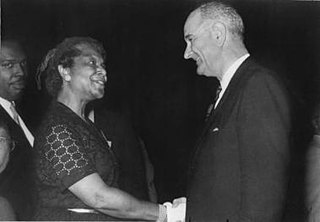
Lenora Rolla was an activist, businesswoman, educator, and historian. The granddaughter of former slaves who grew up in poverty, Rolla became a civil rights leader and community activist in the Dallas–Fort Worth metroplex. In 1977, she founded the Tarrant County Black Historical and Genealogical Society, whose history museum is named in honor of Rolla.
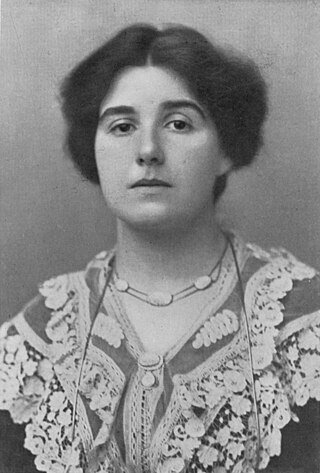
Pauline Ruth "Nina" Salaman was a British Jewish poet, translator, and social activist. Besides her original poetry, she is best known for her English translations of medieval Hebrew verse—especially of the poems of Judah Halevi—which she began publishing at the age of 16.
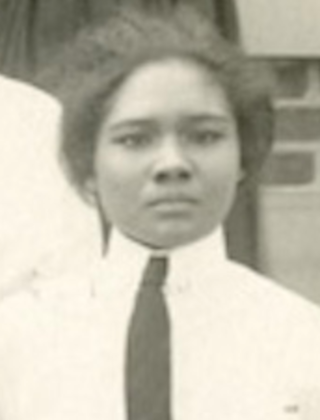
Frederica Chase Dodd was an American educator, social worker, and clubwoman, one of the founders of Delta Sigma Theta.
Martin Abraham Meyer was an American rabbi.
References
- 1 2 3 4 5 Biderman, Rose (15 June 2010). "Kahn, Ruth Brown". Handbook of Texas Online. Texas State Historical Association. Retrieved 2 June 2016.
- ↑ "Who We Are". Dallas Jewish Historical Society. Retrieved 2 June 2016.
- 1 2 Gross, Harriet P. (24 May 2007). "Preserving the Past, Securing the Future". Texas Jewish Post (Fort Worth). Vol. 61, no. 21. p. 12. Retrieved 2 June 2016.